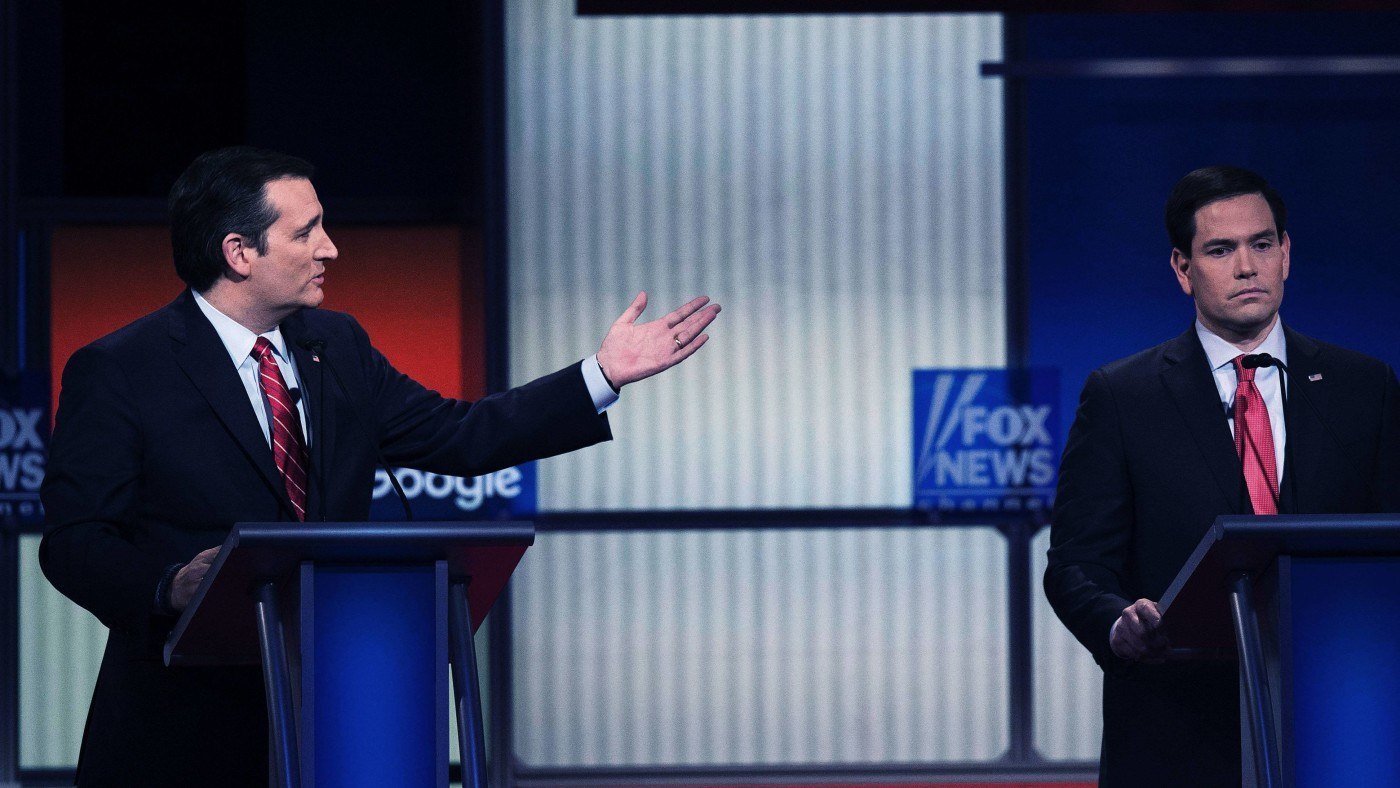Last night, for the first time, the Republicans vying for their party’s nomination duked it out without Donald Trump. As a result, it was a much more substantive and in depth debate than we’ve seen so far. Without Trump’s personal insults and goofy faces, Americans got a real look at the actual professionals running for President.
There’s only one real way to win a debate, by giving a succinct and powerful answer to a moderate or rebuke to a challenger. There are, unfortunately for those running, a lot of other ways to lose a debate.
The most famous example from U.S. history comes from a debate in 1960 between John F. Kennedy and Richard Nixon. It was the first televised debates and likely changed the course of history. While Kennedy performed well, appearing cool and calm, Nixon began to sweat profusely under the hot lights of the cameras, looking nervous and half-dead. The makeup dripping off of Nixon’s face was likely what lost him that election.
Despite the fact that few Americans watch debates, especially between primary candidates, the narratives set by soundbites and clips set the tone for campaigns. During the last election cycle, former Texas Governor Rick Perry, the presumed frontrunner by all accounts, sank his entire candidacy with one flubbed answer that’s almost too painful to watch during an otherwise dismal debate performance. It later came out that Perry was recovering from back surgery during that appearance, but the damage was done and he soon sank like a lead weight to the bottom of the polls.
Last night, Texas Senator Ted Cruz showcased another way to lose a debate. Several times during the course of the evening, Cruz duked it out with moderators over what he felt were unfair questions and an inability to interject a rebuttal whenever he felt entitled to deliver one. During one awkward exchange, several other candidates on stage sided with the moderators, telling Cruz he had no right to ask for a rebuttal, as his name was never mentioned in the previous answer.
By fighting with moderators, Cruz won a few opportunities to speak for perhaps all of 90 seconds more than he would have had he not gone to blows for it. In exchange for those few seconds, Cruz lost any semblance of likability he had going into this debate.
By most accounts, Florida Senator Marco Rubio won last night’s debate with some strong answers, a cool demeanor, a good amount of air time and a solid grasp of the information discussed. In several weeks and months, few will likely remember any of this.
What most will remember is how, when Trump was off-stage and no longer the least popular guy in the room, Cruz took that title in his stead. With pundits and journalists who cover the election already soured on Cruz’s personality, his behaviour did nothing but validate and perpetuate the notion that the Texas Senator isn’t likeable or relatable enough for a general election or the Presidency.


